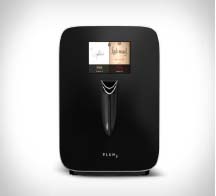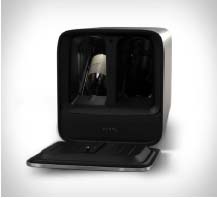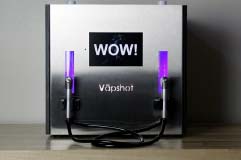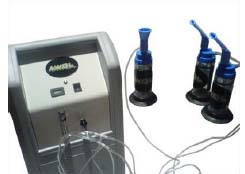New technology impacts commerce across all marketplaces; the alcohol market is no exception. Local breweries exclusively supplied beer to consumers until refrigeration allowed for new national brands to ship their products across the country. The current alcohol universe includes items never considered in the past such as ice creams, confections, and infused beverages developed as a result of emerging manufacturer abilities. Beyond new products, new services and technological advances provide alcohol consumers with convenience and savings that has spread across the United States and internationally. This paper explores advances within the alcohol arena and how the alcohol industry of tomorrow will look.
Mobile Delivery Applications
The internet and smart phone application technology provides businesses with the opportunity to market and advertise themselves in innovative ways. Nearly every good and service can be purchased online and delivered expediently. On-demand services afford consumers near instant gratification. In many major cities across the United States, mobile apps (application software) now allow for the delivery of alcohol beverages in a few touches of a phone screen.
Drizly
Started by two college friends, Drizly identifies itself as a “technology company powering a superior shopping experience for beer, wine and liquor.” Consumers have the option to use the Drizly app on a mobile device or place a delivery order via the company’s website. Delivery comes within 60 minutes and is currently available in over a dozen cities including Chicago, New York City, and Los Angeles.
Drizly does not place a markup on the alcohol sold. They charge retailers a monthly license fee while retailers fulfill orders and receive 100% of the amount charged to consumers. Retailers fulfill orders and offer delivery services. Minimum order requirements and delivery fees exist and vary from city to city. Presently, New York City orders maintain free delivery while retailers charge consumers in many cities a five dollar delivery fee.
In 2015, Drizly and WSWA Services (an affiliate of the Wine & Spirits Wholesalers of America) developed a strategic alliance to accelerate adopting technologies that enable on-demand delivery. With this alliance, Drizly gained access to alcohol wholesalers and their knowledge of the three-tier system, regulatory affairs, and other areas that impact the alcohol industry.
Minibar
Minibar, also started by two college classmates, serves thirteen cities including Miami and San Francisco, as well as New York City and surrounding suburbs. The company emphasizes that it does not possess a liquor license and does not physically handle the alcohol as the direct deliverer. Customers may use the mobile app to create future orders. The app has a Party Planner function where consumers can provide information on their event and receive a recommendation on the amount of alcohol to purchase.
Klink
The Klink delivery service came out of the University of Central Florida in Orlando and was originally named DrinkDrivers. It chooses delivery locations based on “fun people in cool, creative atmospheres.” They currently serve Orlando, Washington DC, Miami, Dallas, and Ann Arbor, Michigan (the home of the University of Michigan).
Klink charges a flat delivery fee under four dollars and does not place a markup on items bought. The company website not only includes delivery services but also lists drinking games, cocktail recipes, and other drinking-related information.
Saucey
Originally focused in California and now expanding to Chicago and Dallas, Saucey takes a unique approach in that the company itself fulfills orders instead of the retailer or a third party. Saucey couriers must be over the age of 21. Couriers have been used in promotional tactics by Saucey including the use of celebrity impersonators delivering to consumers, and other marketing strategies.
Amazon Prime Now
Starting in 2015, Amazon created Prime Now, a delivery service exclusively available to its Prime membership. Amazon Prime customers pay an annual membership fee that affords them free shipping and access to the Amazon movie and television streaming service. Prime Now focuses primary on food delivery but in a select number of cities, starting with Seattle and now including San Francisco and the recently-added Minneapolis, alcohol delivery is also available. One-hour delivery fees vary from city to city and if customers accept waiting for over two hours, delivery is free.
Regulation and Alcohol Delivery
These delivery outlets have introduced a unique component in how consumers get alcohol, which now influences the way the alcohol world is regulated as a whole.
Most alcohol delivery mobile app companies work with government officials to ensure they are in compliance with local and state laws. The Drizly website notes that it has the “blessing of state alcohol regulators” and though not a part of the three-tier system of alcohol regulation, the service is “designed to uphold the laws and spirit of (the) three-tier system to its most stringent practice.” Several company websites make it clear they do not deliver alcohol themselves and do not possess any kind of liquor license. The most used comparison by delivery companies is to the car service Uber. Saucey describes itself as the “Uber for alcohol.”
The licensed alcohol retailers, partners with delivery services, must continue to adhere to the requirements of their license to sell alcohol beverages within this process. A grey area between the licensed retailer and unlicensed delivery company may lead to the interpretation that the unlicensed company has an unlawful undisclosed interest in the retail license. Other issues, such as ensuring alcohol is sold to adults over the age of 21 and to those not intoxicated, also
exist.
Beyond retailers, alcohol producers and distributors face challenges in following relevant trade practices as retailers now possess a new sales outlet. This includes issues of brand advertising and promoting one product over another by the retailer through an agreement with a producer or distributor.
Alcohol Devices and Gadgets
 |
 |
|
Source: Plum website |
|
The product website describes Plum as the “first appliance to fully automate the preserving and serving of wine - just as the winemaker intended.”
The machine holds up to two 750ml bottles of wine with over 200 varieties of wine compatible with the machine. Plum reads the label and can create the ideal temperature for that particular bottle. The appliance uses a needle to pierce the top of the bottle without removing the cork and pours “the perfect glass of wine” according to Plum inventor David Koretz. The system uses a replaceable argon gas canister and a silent cooling system to keep the wine fresh for up to 90 days.
At $1,499 per machine, Koretz admits that Plum is an appliance targeted to a specific audience – “people passionate about wine and who have built a wine collection.” The Plum website includes marketing materials geared toward hotels and Koretz believes that commercial applications may be the future of Plum.
 |
 |
|
Sources: Vapshot and AWOL websites |
|
A British company introduced AWOL (Alcohol Without Liquid) to the United States in 2004 after finding success in Europe. The vaporized alcohol machine was marketed as the “ultimate party toy” and many states responded by banning the sale, possession, and use of vaporized alcohol machines. The company has since ceased operations.
The Vapshot vaporized alcohol company has focused on bars and nightclubs with a lesser focus on a home product. The corporation markets a commercial version of its machine to businesses at a price tag of $16,999 while two different versions of the Vapshot Mini machine, for home use, are available on the company’s website for sale at less than $15,000. Many states will not allow Vapshot machines but the company continues to succeed in its home state of
Texas and in other countries.
“Cash Back Apps”
Ibotta
The Ibotta mobile application does not focus specifically on alcohol products or alcohol outlets but its continued growth since its 2012 launch has made a significant impact on the purchasing of alcoholic products across the country. The application allows consumers to receive cash rebates in over 500,000 locations from more than 300 retail chains across the United States. Three methods to earn those rebates exist:
- Submitting a receipt post-purchase
- Linking a loyalty account for an Ibotta partner
- Mobile purchase made within the Ibotta application
Ibotta’s website includes an area specifically focused on cash rebates for beer, wine, and spirits.
Checkout 51
Checkout 51 is a Canadian-based mobile application similar to Ibotta, but only allows cash rebates after receipts are submitted to the application following purchase. Updated offers appear on the Checkout 51 website every week. Some products are eligible for rebates at any outlet; some are only eligible at certain outlets.
Regulation of “Cash Back Apps”
Coupons and cash rebate programs are regulated differently by state. The use of “cash back apps” does not always fit a state’s definition of a coupon or rebate, especially in the use of these applications for the purchase of alcohol. The emerging trend of such applications has compelled jurisdictions to decide how to treat these programs under existing regulatory and statutory schemes.
Some states already ban the use of coupons or rebate programs for the purchase of an alcoholic product, which makes Ibotta and other similar applications unlawful. Chapter 14B of the North Carolina Administrative Code prevents the use of coupons for alcohol purchases and only allows cash rebates on alcohol purchases “when the redemption form is a part of or attached to the package or container, or when the forms are available on tearoff pads displayed in the store.” The Pennsylvania Liquor Control Board has interpreted the state Liquor Code to exclude the use of such applications.
In states where coupons and rebate programs are allowed for alcohol purchases, regulators must interpret if these applications fit within those rules. States including Virginia, Oregon, New Hampshire, and Mississippi treat Ibotta and similar applications as they do mail-in rebates and allow their use for alcoholic products. These states do not allow the use of instant redeemable coupons (IRCs), where a coupon for a product is affixed directly to the product to use upon purchase, and they have concluded cash rebate applications do not fit into the IRC category as the benefit is not “instant.”
Conclusion
The swell of technological advances across industries will undoubtedly continue to impact alcohol and alcohol manufacturers, wholesalers, retailers, consumers, and regulators.
What consumers drink, how much they pay for their drink, how they drink it, and how their drink is delivered into their hands are just some of the areas in flux. Only time will tell where new alcohol technologies will take drinking in society.
